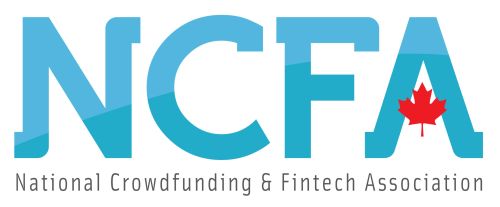Feb 15, 2024
When we talk about managing buildings or homes in a way that’s good for the planet and saves money, we’re talking about sustainable property management. It means making smart choices that help the environment and cut down on costs. Let’s look at simple but effective ways to make buildings greener and why it’s a win-win for everyone.
The Role of Sustainability in Property Management
Why is sustainability critical in property management? Sustainability is all about taking care of our planet and living in a way that’s better for our future. For buildings and homes, this means using less energy, wasting less water, and making sure we don’t throw away too much stuff. Doing this helps the Earth and saves money on bills, which is great for everyone who lives or works in these places.
So, sustainable practices in property management can lead to reduced energy consumption, lower utility costs, and minimized waste. But the impact doesn’t stop there, it extends to improving property values, improving tenant satisfaction, and even contributing to the broader fight against climate change. Let’s check sustainability practices:
1. Green Building Practices
Green building practices form the cornerstone of sustainable property management. These practices encompass:
- Eco-friendly Construction Materials: Using recycled, renewable, or sustainably sourced materials reduces environmental impact during the construction phase and throughout the life of the property.
- Sustainable Design Principles: Architectural designs that maximize natural light, improve air quality, and encourage energy efficiency are pivotal. Features like green roofs, rain gardens, and efficient landscaping not only beautify properties but also contribute to their sustainability.
- Certification Standards: Adhering to recognized green building standards, such as LEED (Leadership in Energy and Environmental Design), provides a framework for achieving sustainability goals and demonstrates a commitment to eco-friendly operations.
2. Energy-Efficient Upgrades
Implementing energy-efficient upgrades is a straightforward yet impactful way to enhance sustainability. Consider these upgrades:
- LED Lighting: Switching to LED lighting from traditional incandescent bulbs can significantly reduce energy consumption and costs.
- High-Efficiency HVAC Systems: Modern, efficient heating, ventilation, and air conditioning systems adjust to maintain optimal indoor temperatures with minimal energy use.
- Smart Thermostats and Energy Management Systems: These technologies allow for automated, optimized energy use throughout properties, further cutting down costs and environmental impact.
3. Water Conservation Measures: Every Drop Counts
Water conservation remains a vital component of sustainable property management, even in the context of protecting metal buildings against extreme weather. Implementing measures such as installing low-flow toilets and faucets, incorporating rainwater harvesting systems, and integrating efficient irrigation systems for landscaping can significantly diminish water consumption and utility costs. These strategies not only contribute to environmental sustainability but also enhance the overall resilience of metal buildings against extreme weather conditions. By conserving water resources, building owners can mitigate potential risks associated with water damage during storms or floods, thus further safeguarding their properties against the impacts of extreme weather. Here are some ways to save water:
- Collect Rainwater: Set up systems to catch rainwater. You can use this water for watering plants or flushing toilets.
- Smart Watering for Gardens: Use drip irrigation or timers for watering lawns and gardens. This makes sure plants get just the right amount of water without wasting any
- Educate Tenants: Sometimes, people use more water simply because they don’t realize it’s being wasted. Sharing tips on saving water can make a big difference.
By taking these steps, we not only cut down on water use but also contribute to a healthier environment.
4. Waste Reduction and Recycling: Towards Zero Waste
Encouraging waste reduction and recycling among tenants can significantly reduce a property’s environmental footprint. Providing accessible recycling bins, composting options for organic waste, and engaging in community clean-up events are great ways to promote a culture of sustainability. Let’s check the details.
- Donate What You Don’t Need: Encourage tenants to donate items they no longer need instead of throwing them away. This could be clothes, furniture, or electronics.
- Set Up a Sharing Corner: Create a space where tenants can leave items for others to use, like books, tools, or kitchen gadgets. It’s a great way to reduce waste and build community.
- Provide Accessible Recycling Bins: Place recycling bins in easily accessible locations throughout the property. This includes common areas, near entrances, and in parking lots to ensure tenants and visitors can recycle without inconvenience. Use clear and simple signs to show what materials can be recycled. Pictures and colours can help people quickly identify the right bin for each type of waste.
- Composting Options for Organic Waste: Offer compost bins for food scraps and other organic waste. This can be particularly effective in properties with communal kitchens or gardens. Provide information on what can be composted and the benefits of composting, such as reducing landfill waste and creating nutrient-rich soil for gardens.
- Engage in Community Clean-Up Events: Plan events where tenants can come together to clean up local green spaces, beaches, or even the property itself. This not only helps the environment but also builds a strong sense of community. Collaborate with environmental groups or municipal programs to support larger clean-up efforts. This can provide additional resources and increase the impact of your events.
The Role of Residential Property Management
When it comes to residential property management, the need for sustainability is high. Integrating eco-friendly practices in residential settings directly affects the quality of life for tenants, making sustainable property management an attractive proposition for prospective tenants. Here’s why:
- Healthier Living Environments: Sustainable buildings often have better air quality and less toxic materials, contributing to the well-being of occupants.
- Lower Living Costs: Energy-efficient upgrades and water conservation measures can significantly lower utility bills for tenants.
- Community and Well-Being: Green spaces and communal areas that follow sustainability principles promote a sense of community and well-being among residents.
If you could choose a living space that saves you money, supports your health, and contributes to the planet’s well-being, wouldn’t you?
Benefits for Property Owners and Tenants Alike
Adopting sustainable property management practices brings a plethora of benefits:
- Cost Savings: Reduced energy and water usage translate to lower operating costs.
- Increased Property Value: Properties with green certifications and sustainable features often command higher market values and rental rates.
- Improved Tenant Satisfaction and Retention: Eco-friendly initiatives improve tenant satisfaction, leading to higher retention rates.
- Positive Environmental Impact: Every sustainable practice adopted contributes to the broader goal of environmental conservation.
In conclusion, sustainable property management is a win-win strategy that not only benefits the planet but also improves the financial performance and attractiveness of properties. By investing in green building practices, energy-efficient upgrades, and promoting a culture of sustainability, property managers can lead the way toward a more sustainable, cost-efficient future in real estate.

 The National Crowdfunding & Fintech Association (NCFA Canada) is a financial innovation ecosystem that provides education, market intelligence, industry stewardship, networking and funding opportunities and services to thousands of community members and works closely with industry, government, partners and affiliates to create a vibrant and innovative fintech and funding industry in Canada. Decentralized and distributed, NCFA is engaged with global stakeholders and helps incubate projects and investment in fintech, alternative finance, crowdfunding, peer-to-peer finance, payments, digital assets and tokens, artificial intelligence, blockchain, cryptocurrency, regtech, and insurtech sectors. Join Canada’s Fintech & Funding Community today FREE! Or become a contributing member and get perks. For more information, please visit: www.ncfacanada.org
The National Crowdfunding & Fintech Association (NCFA Canada) is a financial innovation ecosystem that provides education, market intelligence, industry stewardship, networking and funding opportunities and services to thousands of community members and works closely with industry, government, partners and affiliates to create a vibrant and innovative fintech and funding industry in Canada. Decentralized and distributed, NCFA is engaged with global stakeholders and helps incubate projects and investment in fintech, alternative finance, crowdfunding, peer-to-peer finance, payments, digital assets and tokens, artificial intelligence, blockchain, cryptocurrency, regtech, and insurtech sectors. Join Canada’s Fintech & Funding Community today FREE! Or become a contributing member and get perks. For more information, please visit: www.ncfacanada.org
Related Posts
- SEO Powered Content & PR Distribution. Get Amplified Today.
- PlatoData.Network Vertical Generative Ai. Empower Yourself. Access Here.
- PlatoAiStream. Web3 Intelligence. Knowledge Amplified. Access Here.
- PlatoESG. Carbon, CleanTech, Energy, Environment, Solar, Waste Management. Access Here.
- PlatoHealth. Biotech and Clinical Trials Intelligence. Access Here.
- Source: https://ncfacanada.org/sustainable-property-management-strategies-for-eco-friendly-operations-and-cost-savings/




